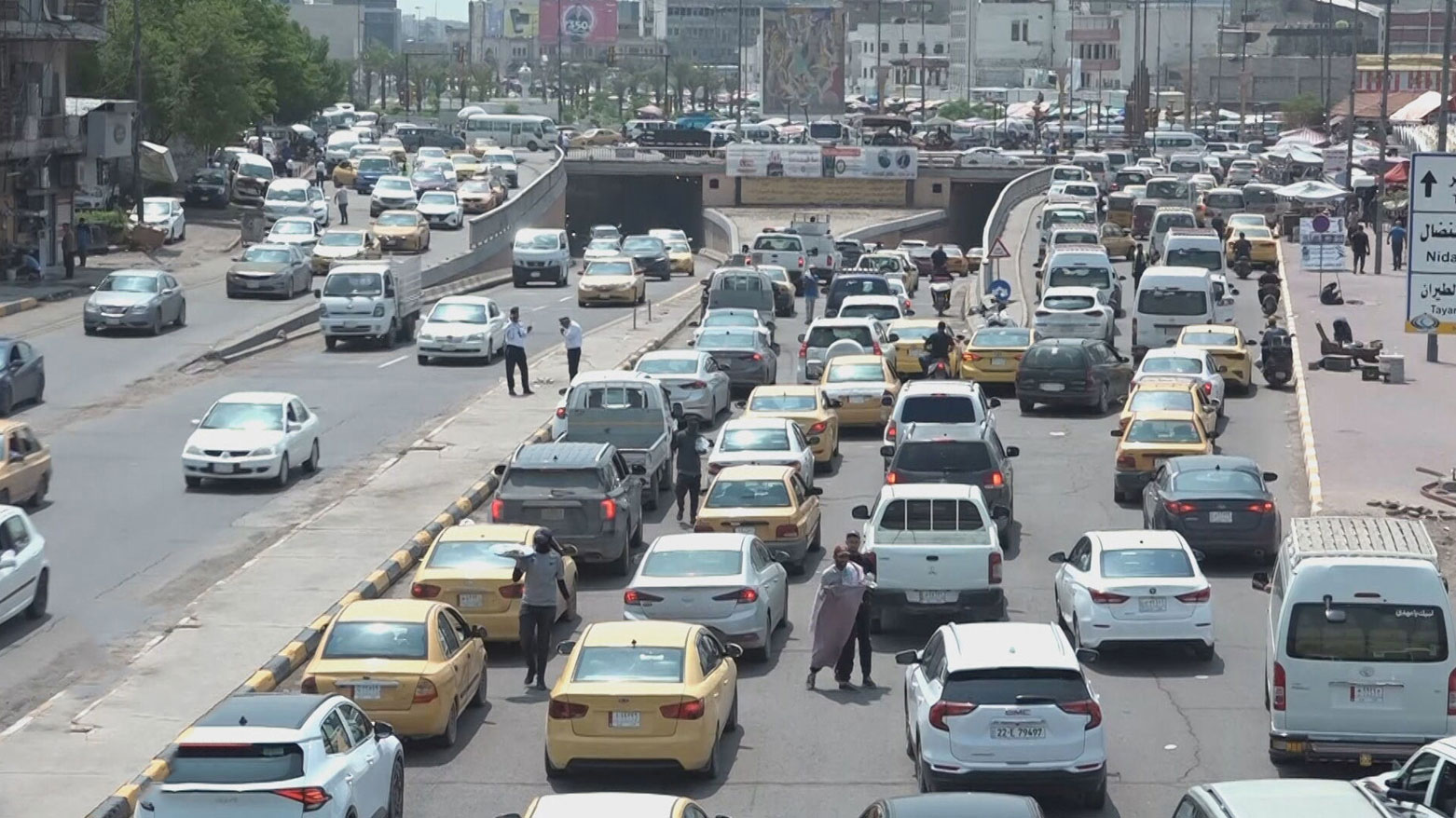Traffic Gridlock Deepens Baghdad’s Urban Crisis
Photos from Karrada, one of the busiest central neighborhoods, showed drivers stranded thousands of meters away from their destinations, waiting for hours as traffic police struggled to clear intersections.

ERBIL (Kurdistan24) – Mounting traffic congestion in Iraq’s capital is drawing sharp criticism from residents, who say government failures in managing basic road services are stripping Baghdad of the modern image it once held.
On Tuesday, Iraqi media reported severe gridlock across several districts, where long lines of vehicles brought traffic to a standstill. Photos from Karrada, one of the busiest central neighborhoods, showed drivers stranded thousands of meters away from their destinations, waiting for hours as traffic police struggled to clear intersections.
Residents say the problem is not new but has worsened in recent weeks, especially with the start of the new school season. Families, students, and employees alike are facing daily delays in reaching schools, universities, and workplaces.
“The situation is unbearable. Every day we waste hours on the roads without any solution in sight,” one driver told local media, accusing authorities of neglecting Baghdad’s infrastructure. Others criticized government institutions for failing to maintain the capital’s reputation as Iraq’s political and cultural hub.
While Baghdad is home to the country’s most important government offices and institutions, citizens argue that its streets and services do not reflect its role as the nation’s center of governance. Even the traffic police, they note, are overwhelmed and unable to impose order.
Baghdad, once celebrated as a symbol of Arab modernity in the mid-20th century, has struggled for decades with underdeveloped infrastructure. Years of war, sanctions, corruption, and weak urban planning have left the capital unable to meet the needs of its growing population, estimated at over 9 million. The city’s road network has not kept pace with the rapid increase in vehicle ownership, while public transport remains minimal and unreliable.
In contrast, Erbil—the capital of the Kurdistan Region—has made notable progress in road expansion and urban development over the past two decades. While traffic congestion is still a concern during peak hours, city authorities have invested in building new roads, underpasses, and ring roads to ease pressure on the city center. Urban planners also point out that Erbil’s more effective coordination between municipal services and traffic police has helped prevent the kind of chronic gridlock seen in Baghdad.
Experts say that without investment in new roads, bridges, and public transport systems, congestion will continue to paralyze the city, affecting not only daily life but also Iraq’s economic productivity and international image.
To address these challenges, urban planners and policymakers must prioritize sustainable development and invest in modernizing Baghdad's infrastructure. This includes expanding road networks, improving public transportation, and implementing smart traffic management systems to reduce congestion and enhance mobility. Such efforts are essential to restore Baghdad's status as a thriving cultural and economic hub.